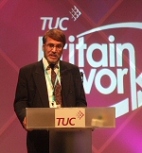 Young Muslims are being convicted of thought crimes and branded as terrorists for life, the country’s most prominent Islamic leader has told The Times.
Young Muslims are being convicted of thought crimes and branded as terrorists for life, the country’s most prominent Islamic leader has told The Times.
Muhammad Abdul Bari said police and prosecutors were criminalising youths for harbouring “silly thoughts” and were undermining Gordon Brown’s £400 million drive to win Muslim hearts and minds. Dr Bari, Secretary-General of the Muslim Council of Britain, was commenting ahead of the sentencing today of Samina Malik, a shop assistant who styled herself as “the lyrical terrorist”, wrote poetry in praise of beheadings and joined extremist internet forums.
Dr Bari told The Times: “Many young people download objectionable material from the internet, but it seems that if you are a Muslim then this could lead to terrorist charges, even if you have absolutely no intention to do harm to anyone else. Samina’s so-called poetry was certainly very offensive but I don’t believe that this case should really have been a criminal matter. Young people may well have some silly thoughts. That should not be criminalised. It is their actions that we should be concerned about.” He said that if police were concerned about Malik they should have placed her under surveillance and detained her if she was involved in “actual terror-related activity”.
Dr Bari added: “Instead, she was prosecuted for what can only be termed really as a thought crime. This should not be of concern just to Muslims, but to all in our society who care about natural justice. Her conviction raises a lot of deeply worrying questions about Section 58 of the Terrorism Act and just how incredibly broad its scope is.”
He contrasted the stance taken by the police in cases like Malik’s with Gordon Brown’s antiradicalisation initiatives in schools, mosques and youth groups. The Prime Minister spoke in his security statement last month about mentoring programmes, roadshows and other methods to “isolate extremists”.
Dr Bari said that Malik’s conviction and other cases could prove counter-productive. He added: “It is certainly sensible for the Government to work with Muslim groups to counter extremist propaganda. This is, we have been told often, part of a ‘hearts and minds’ campaign directed at young British Muslims, but it is difficult to see how Samina’s conviction can do anything other than impair this effort.”
